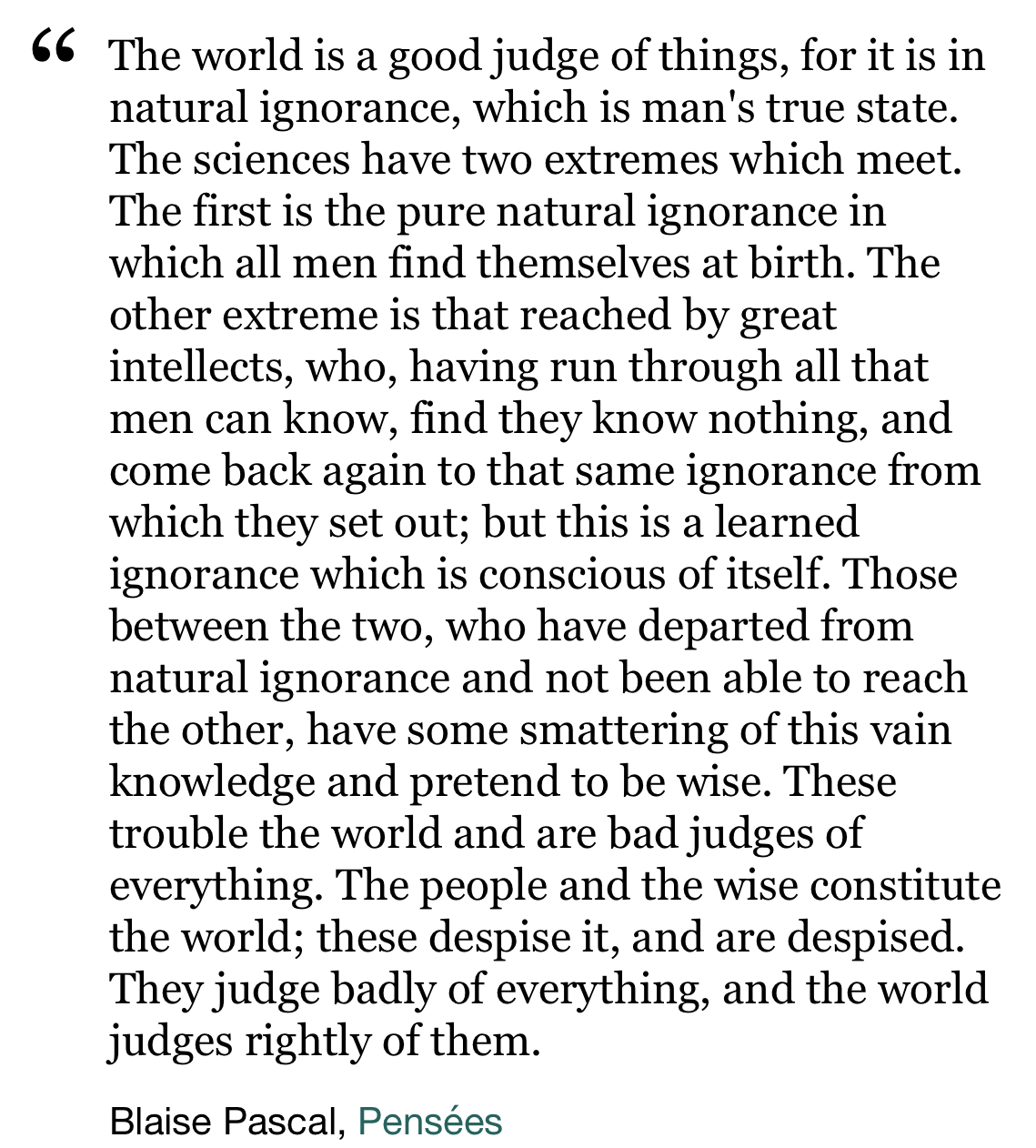
Did Pascal invent the midwit meme?
7
150Ṁ277resolved Jan 22
Resolved as
40%1H
6H
1D
1W
1M
ALL
Resolves YES if no examples of this observation occur prior to 1670
Otherwise, 1/N based on number of early thinkers incl. Pascal who noticed midwittery:

This question is managed and resolved by Manifold.
Get  1,000 to start trading!
1,000 to start trading!
🏅 Top traders
| # | Name | Total profit |
|---|---|---|
| 1 | Ṁ14 | |
| 2 | Ṁ3 | |
| 3 | Ṁ0 | |
| 4 | Ṁ0 |